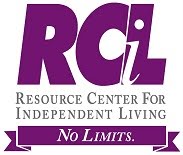It seems like an easy question, but if you ask five people what advocacy is, you’ll get five very different responses. Advocacy can be thought of as giving active support for a cause or position. Advocacy can be done by an individual or by an advocacy group, and may be motivated by morality, ethics, faith, self-interest, etc. Advocacy can also take many forms: from dousing people in fur jackets with red paint, to sending mailings entreating one to preserve the planet and its resources, to offering personal testimony at a public hearing.
Why is advocacy important?
Advocacy is important because YOU are important. Despite the progress made in our society over the years, many people still experience inequality in their lives, or see unfairness that compels them to action. You may feel like advocating for certain causes or people at times. As long as you are respectful in your advocacy, go for it! Advocacy reinforces the idea that we all have a voice, and we will be heard. Remember, many people may not be aware of the injustices you see or experience in your life, and advocacy is a great way to change attitudes and misconceptions.
What do you need to advocate?
All you need to advocate is an idea, a strong commitment to a cause, and the willingness to learn all there is to know about the issue. Remember: you always have the right to ask questions about why something is the way it is, and what can be done about it. Your rights as a human being are just as important as anyone else’s. Advocating gives you an opportunity to address an issue that is important to you, and allows you to learn more about the world you live in.
Why advocacy at RCIL?
RCIL has offered advocacy services for over 27 years. This includes advocacy on an individual level (advocating for a person to receive services), and on a systemic level (advocating for greater access to home and community based services). RCIL engages in advocacy because, although our country has progressed in the way it treats persons with disabilities, there is still a bias toward segregation and isolation, and a lack of access. That is something we want to change.
What do you want to change?
- Quinton

You need much more than just a willingness to take sides to be a good advocate. You need patience, committment and real guts. Advocacy isn't exclusive to one agency either, and you don't need anyone to 'take sides'. An advocate can come from anywhere and advocate for anything, with or without a crowd.
ReplyDelete